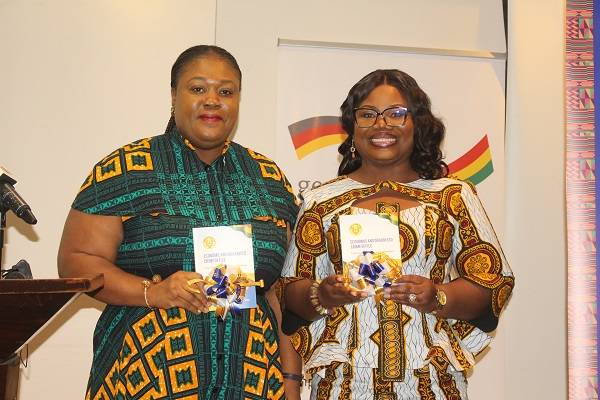The Economic and Organised Crime Office (EOCO) has launched a document that spells out new strategies to effectively deal with economic and organized crimes in securing the economic well-being of the state.
It mainly seeks to disrupt organized criminal activities, deny criminals the proceeds of crime, partner with local and international law enforcement agencies and other relevant agencies, and develop EOCO into an operationally and financially resilient and sustainable organization.
The five-year plan which will span 2023 to 2028 comes after the expiry of an earlier strategic plan which was for the period 2013 to 2017.
It was developed with financial and technical assistance from the Governance for Inclusive Development Programme of GIZ and the UK Foreign Commonwealth Development Office (FCDO).
The event brought together representatives of stakeholder organizations and organizations including the Commission on Human Rights and Administrative Justice (CHRAJ), the Public Prosecutions, Narcotics Control Commission and the Office of the Special Prosecutor.
The rest are Financial Intelligence Centre, Ghana Anti-Corruption Coalition, Ghana Police Service, Ghana Journalists Association and the British High Commission.
In a speech read on his behalf, the Attorney-General and Minister of Justice, Godfred Yeboah Dame, said EOCO in its 12 years of existence had chalked up some major successes but still possessed the potential capable of transforming itself into a more formidable state institution that would lead the charge in the fight against financial crimes.
“The plan shall serve as a blueprint and an evaluative tool against which the overall performance of EOCO shall be measured.
It further provides a reliable planning framework for the operations and long-term sustainability of the office,” the speech, delivered by a Deputy Attorney-General and Minister of Justice, Diana Asonaba Dapaah, said.
He said he was pleased that the plan recognized the evolving complexities of modern-day crimes and emphasized the need for the adoption of relevant technologies as part of its crime-fighting strategies, adding that EOCO needed to be even more sophisticated and robust to stay ahead of the game.
“I am therefore confident that our sustained efforts to see to the implementation of this strategic document would lead to the development of a safer and prosperous society for all Ghanaians,” he added.
Significance
The Executive Director of EOCO, Commissioner of Police (COP), Maame Yaa Tiwaa Addo-Danquah, said the document would provide the needed guidance to ensure the production of consistent and sustainable results for the office and urged stakeholders to closely monitor its implementation since it reflected their shared ideals and interests.
The plan, she said, was expected to bring significant improvement to the internal processes of EOCO while providing for a mission and vision statement which would aid the communication of a clear direction for the office.
“Moreover, it sets out pragmatic steps for the Office to become more responsive to its mandate through the implementation of a robust asset recovery and management regime, the use of modern technology, the development of adequate human capital, as well as the fostering of relevant partnerships,” COP Addo-Danquah explained.
Implementation
The Head of Governance at the Commonwealth Secretariat, Dr Rodger Oppong Koranteng, said the most important part of any plan was the implementation.
“I have looked at the strategic plan and I think as a document, it is perfect.
Now the question is if they would be able to implement it to the letter. That’s what we want to know and we will in the next five years,” he said in an interview with the Daily Graphic.
Dr Oppong-Koranteng urged the board, the management and the entire staff of EOCO not to leave the plan to collect dust after all the pomp and circumstance of the launch but rather enforce its content to the benefit of the public.
Source:graphic.com.gh





